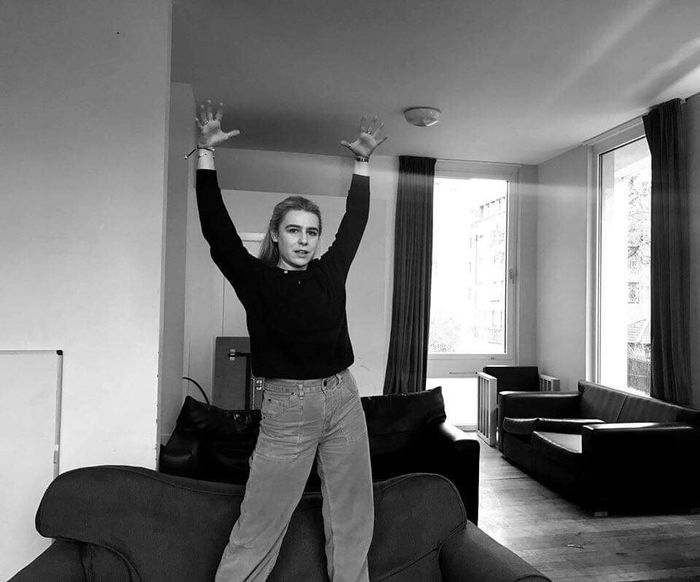Effie’s got something to say in Iphigenia in Splott
Freddy Legg can’t get enough of Meg Coslett’s masterful, heartbreaking performance

Gary Owen may have written the play, and the eponymous Greek Heroine may have been around for several millennia, but make no mistake: this is Meg Coslett’s show. From the moment she walks on stage as Effie, she captivates the audience, blasting the audience with her middle finger and letting us know that she is not here to entertain us – we are here for her, to listen to everything she has to say.
Coslett thrives in this subtle tour de force, as Effie slowly loses her façade of confidence. Initially, she is the archetypal layabout: swearing, drinking, taking drugs, craving a three-day hangover just to get her through the week. However, as Effie tries to move away from this, opening herself to feelings of love, family and maturity, it becomes clear that this posturing and grandstanding is just a defence. Coslett’s artifice of confidence is sublime, with each piece gradually falling away to reveal a hardened soul beneath. Coslett will be well known to seasoned audience members for her more comedic work, and this is employed spectacularly here, with a droll sarcastic charm barely covering the deep sadness beneath the ridicule.

Coslett’s performance tightly pulls the audience through vomit-inducing hangovers, nights of passion with wounded soldiers, and a GP’s waiting room, gripping the audience in the mundane and heart-breaking reality as it builds inexorably towards the tragedy and sacrifice to which the title alludes. The Iphigenia of mythology is sacrificed by her father Agamemnon in order to ensure the Greek ships can sail to Troy; one of the beauties of Coslett’s performance is that the audience is never quite sure which role she plays here. On the surface she might appear to be the parent, sacrificing that which is dearest to her for the sake of the needs of society; however, Coslett’s performance could just as easily have her be the sacrificial child, the child of her environment, lamenting that it is always people like her who must suffer and be sacrificed when the going gets tough.
Ben Vince’s direction is perfectly complementary to the performance. His minimalist staging leaves Coslett alone on stage with just a raised platform; without props or decor to rely on, Coslett has nowhere to hide. It is thrilling to see this director/actor pair reunite after their underrated Disco Pigs in Michaelmas, and this comfort between the two has allowed a deep exploration of Coslett’s incredible capacity as a performer and Vince’s as director. The technical aspects of the productions similarly build into this: used sparingly, but effectively, you never forget that the spotlight (both metaphorical and literal) is on Coslett. Whilst initially this builds into her bolshie and loud character, focusing on her brashness, as the play goes on it reveals what Effie really is: alone. This is captured perfectly by Coslett, whose slow retreat from hostility into vulnerability perfectly captures the terrifying ordeal of being known by other human beings, and how excruciating it can be to make yourself vulnerable and lose everything.
This unflinchingly honest performance, at a near blistering 80 minutes, solidifies Coslett’s position as one of the most versatile performers in Cambridge. From laughter to abject despair, she draws us intimately through the entire piece, making every word and every audience member count. Iphigenia in Splott is a breathtaking achievement by Coslett and the whole team, and is surely not to be missed.
 Features / Are you more yourself at Cambridge or away from it? 27 January 2026
Features / Are you more yourself at Cambridge or away from it? 27 January 2026 News / Vigil held for tenth anniversary of PhD student’s death28 January 2026
News / Vigil held for tenth anniversary of PhD student’s death28 January 2026 Interviews / Lord Leggatt on becoming a Supreme Court Justice21 January 2026
Interviews / Lord Leggatt on becoming a Supreme Court Justice21 January 2026 News / Reform candidate retracts claim of being Cambridge alum 26 January 2026
News / Reform candidate retracts claim of being Cambridge alum 26 January 2026 Comment / How Cambridge Made Me Lose My Faith26 January 2026
Comment / How Cambridge Made Me Lose My Faith26 January 2026










